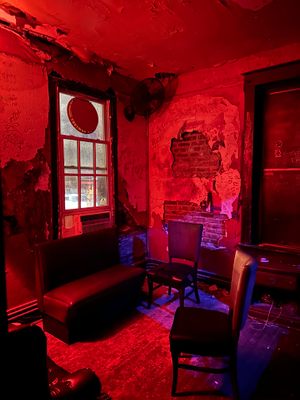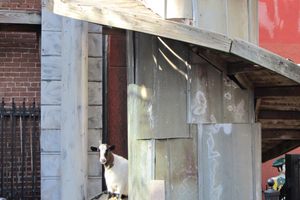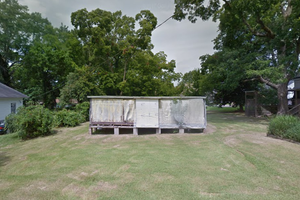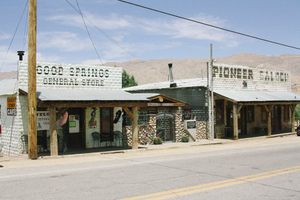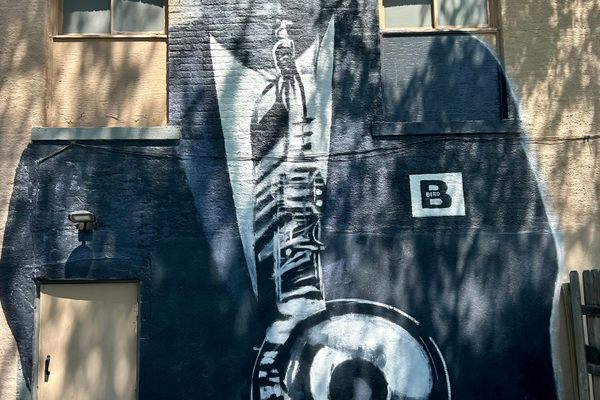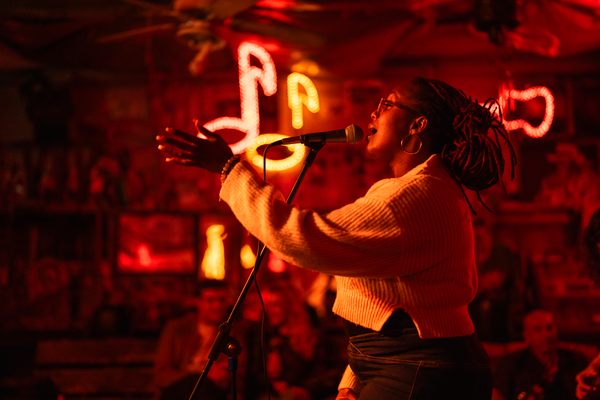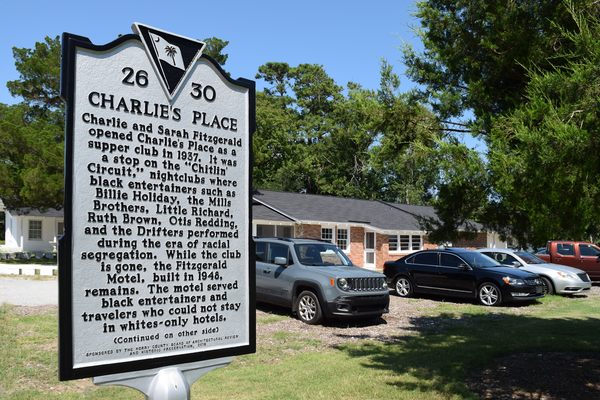About
The Memphis lounge Earnestine and Hazel's has more musical connections than are immediately evident. Little Richard, broke at the time, once stayed at this iconic spot for three weeks, surviving on Earnestine's chili, and Mick Jagger and Keith Richards, while visiting in the ‘60s, were inspired to compose the tunes "Honky Tonk Women" and "Brown Sugar".
The building is from the late 1800s; it was a church, then a dry goods store, and then a pharmacy owned by a multi-millionaire who allegedly just gave it to the two cousins who ran the beauty salon upstairs, Earnestine Mitchell and Hazel Jones, sometime mid 20th century.
Mitchell and Jones opened a restaurant on the main floor. Downstairs became a jazz cafe, part of the upstairs remained a salon, and the other rooms were sometimes rented to Black travelers who’d just arrived in the heavily segregated city at the Memphis Central Railway Station across the street but were mostly offered at hourly rates. Memphis' segregation and politics often kept police out of Black-owned businesses, and the upstairs remained the town’s most infamous brothel until the late 1980s.
In the ’50s and ’60s (and on into the ’80s) Earnestine's husband Sunbeam booked acts like Aretha Franklin, Chuck Berry, and Ray Charles at Club Paradise nearby, and most nights the performers would make their way to Earnestine & Hazel’s for cheap neck bones, hog maws, and more booze and dancing, before walking two blocks to sleep it off at the Lorraine Motel (where Martin Luther King Jr. would be killed in 1968).
By the 1980s, the club was losing business. The wild regulars and women who lived upstairs made the increasingly desegregated crowds anxious and afraid. The club’s days seemed to be numbered―until local bar owner Russell George came around.
When George was ten years old he was the only white boy in a James Brown dance competition judged by the man himself. He won. By the time he was 15 he’d opened a speakeasy, Jefferson in the Rear, in an apartment in downtown Memphis. In his 20s, he was the band manager and a dancer for the R&B group Icebreakers.
A promoter tipped him off to Earnestine and Hazel’s potential. George bought it in the late ’80s, kicked everyone out, and reopened it on St. Patrick’s Day 1993. The bar doesn’t get pick up till about midnight when people come to continue drinking or soak up the night’s alcohol with the only item on the menu, the Soul Burger. There’s a bar upstairs that opens on weekends to accommodate larger crowds.
Aside from hosting after-hours crowds, the bar is considered one of the most haunted places in Memphis. People hear voices upstairs, and employees have noted that the jukebox occasionally turns itself on t0 play eerily-appropriate tunes. One day, when a paranormal researcher was visiting, a bartender says the machine started playing "Sympathy for the Devil" on its own. And on the day James Brown died, the jukebox blasted out “I Feel Good” unprompted by hand or quarter. At least the ghosts have good taste.
Related Tags
Community Contributors
Added By
Published
August 14, 2017





